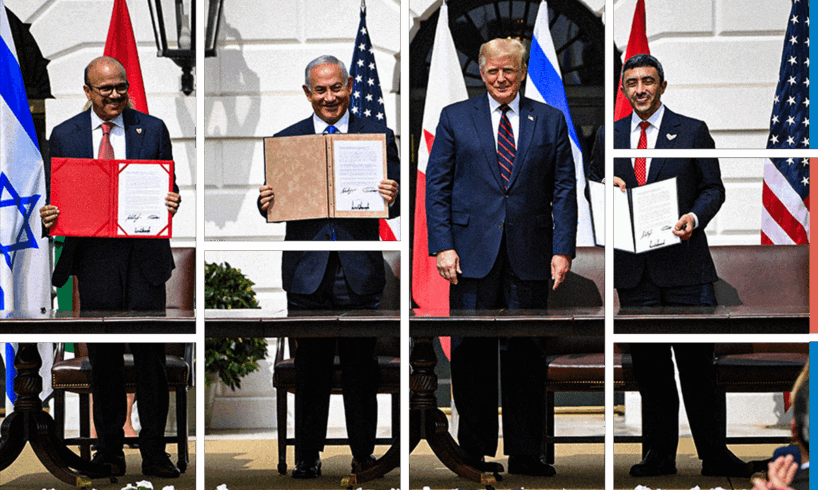
Something is brewing
It’s a shame Israelis aren’t hearing what senior Hamas officials have been saying in recent days. They might be more encouraged, even argue a little less. The terrorist organization is in total hysteria over Israel’s threats to enter Gaza. The euphoria of the “Al-Aqsa Flood” has evaporated, as has the impact of their starvation campaign. They are no longer describing October 7 as a victory that brought enormous achievements and returned the Palestinian issue to the center of global attention. This week, Canada and Belgium backed away from recognizing a Palestinian state, while the US made it clear again, through US envoy Steve Witkoff, that Hamas must abandon Gaza quickly.
Inside Hamas, the prospect of Israel entering Gaza City is already being called “the final battle.” From their perspective, every country has deserted them except Yemen. Iran has stopped supporting them, and even the Qatari money that so riles Israel is, in their eyes, proof that Doha too has abandoned them.
This explains their lowering of demands and willingness to consider a partial deal. They fear that an Israeli entry into Gaza City could mean Hamas’ ultimate defeat. But total surrender and returning all the hostages is not on the table, since that would be the final nail in the coffin of Yahya Sinwar’s vision. After all, he ordered the October 7 attack to halt normalization between Israel and Saudi Arabia. An Israeli victory in Gaza could push not only Riyadh but also Syria, Lebanon and other countries toward normalization with Israel.
US President Donald Trump with images of Gazans and humanitarian aid in the background. Photo: Reuters, AFP Reuters, AFP
Prime Minister Netanyahu, however, is refusing a partial deal. That raises two intertwined questions: First, is it better to brandish the threat of entering Gaza rather than actually doing it? Perhaps the threat of conquest is more effective than the slow, costly reality with its heavy toll in lives and international legitimacy. Second, could this all be an Israeli deception tactic? Maybe it’s a way to extract more concessions from Hamas. What if the organization agrees to release more hostages in a partial deal?
Hints keep surfacing that between the extremes of a partial or full deal lies a whole spectrum. What exactly did President Donald Trump mean when he predicted the war would end “within two or three weeks”? Is that tied to contacts with Gulf states? What role is Strategic Affairs Minister Ron Dermer playing along the Jerusalem–Abu Dhabi axis, and is it connected to the mysterious reports of optimism about the war ending soon with an “out-of-the-box” solution? The mood recalls, in a different way, the weeks leading up to the Abraham Accords, as if something big is brewing in the Gulf. The only question is whether it will be ready before the tanks roll into Palestine Square.
Four against one
Ron Dermer already has a retirement date marked on his calendar: January 1, 2026, four months from now. The most important minister in the government has had enough of his post, and his family has had enough of neighbors’ protests and bullhorns. They haven’t forgotten the man who once arrived with a knife and was stopped only at the gate.
Cabinet Secretary Tzachi Braverman is already packing his bags for London, where he will serve as ambassador, enjoying the city but dealing with the new Labour government. National Security Adviser Tzachi Hanegbi is also on his way out. After battling a serious illness, and following three years in the role including overseeing a successful strike in Iran, he will soon step down. The expectation in Netanyahu’s office is that, like Trump during his term, the prime minister will parachute in a candidate with a strong military background and high public profile, preferably from Channel 14 or the like.
Strategic Affairs Minister Ron Dermer | Photo: Emil Salman
Adviser Jonatan Urich wants to return, but the police are blocking him, at least until the eve of Rosh Hashanah.
Not every round of personnel changes counts as “the disintegration of the Prime Minister’s Office.” But this cluster is unusual in three ways: its scope, its timing, and the lack of replacements lined up. Over the past decade, senior appointments in the prime minister’s office have almost always come with a “voucher” for a stint in the Russian Compound police station in Jerusalem. Nearly every senior aide has been arrested, questioned or put on trial. Under those conditions, who would want to come in now, especially during an election period defined by stagnation and lack of direction?
Almost all of Netanyahu’s consultations during the 23 months of war have been with these four. Who will he turn to now? Of all the departures, Dermer’s is by far the most consequential. He holds all the most critical security portfolios: Iran, Syria, Gaza, and the hostages. By January 1 he is supposed to complete two key tasks he vowed not to leave unfinished: ending the war and expanding the Abraham Accords.
Not long ago he promised that by April 2026, the war would be behind us and multiple new peace agreements would already be signed. Of course, there is another possibility: that he will once again extend his “reserve duty” in Netanyahu’s office.





